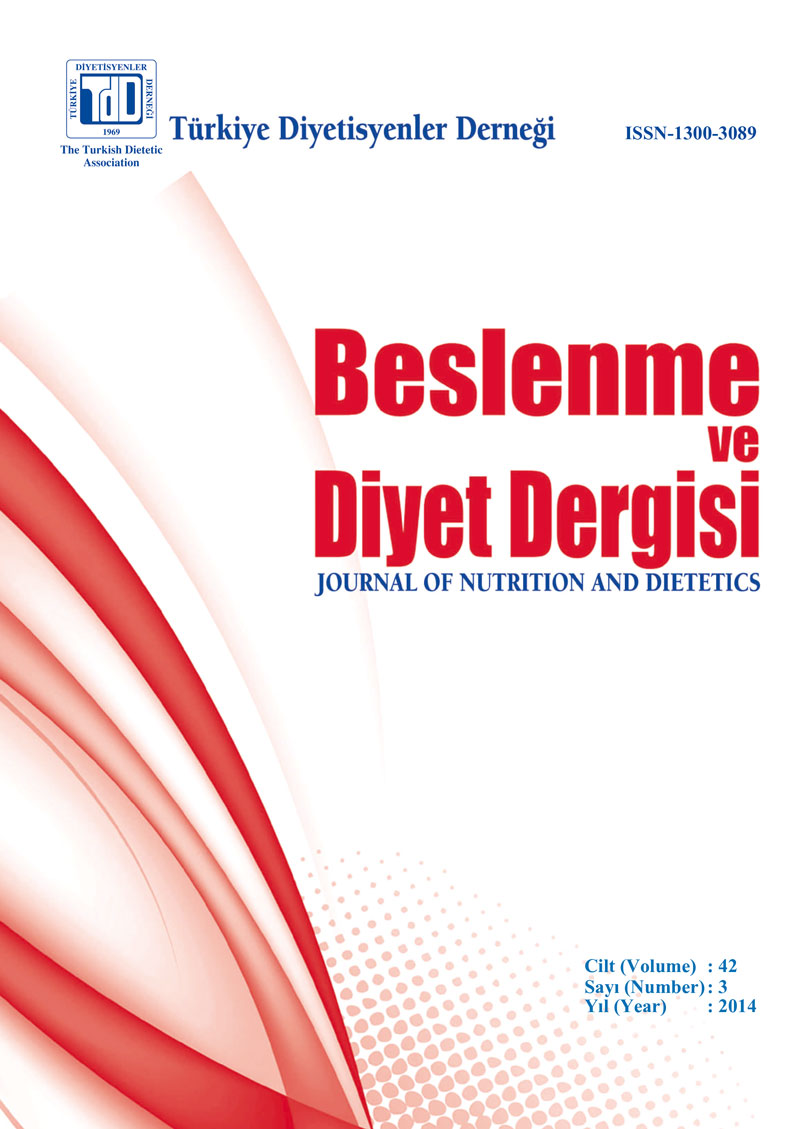Determination of Infant Nutrition Knowledge and Practices of Lactating Women (0-24 months postpartum) Admitted to Karadeniz Technical University Faculty of Medicine, Farabi Hospital
Keywords:
Infant nutrition, breastfeeding, complementary feeding, anthropometric measurementsAbstract
Aim: This study was conducted to determine the breastfeeding and infant feeding knowledge and practices of lactating women (0-24 months postpartum) and to assess the nutritional status of mothers and their babies. Subjects and Methods: Two hundred and fifty women (0-24 months postpartum) and their babies who admitted to Karadeniz Technical University (KTU) Faculty of Medicine, Farabi Hospital was recruited. General characteristics of mothers and knowledge on infant nutrition and feeding practices were determined. Anthropometric measurements of babies at birth were determined by self-reporting and hospital records and current anthropometric variables were measured. In order to assess the dietary intake of lactating mothers (n=130) and babies 6 months and over (n=210), 24 hour food recalls were determined. Results: Mean (±SD) age of mothers was 30.6±4.8 years and 44.4% were housewives. Out of total, 53.2% of babies were boys and 84.0% had age 6 months and over. Out of total, 47.6% of mothers was reported that they had training on breastfeeding techniques in hospital, 86.4% of mothers breastfed their babies in the first 12 hours, 82.4% of mothers breastfed whenever the baby cries and 94% of the babies were given colostrum. Iron and vitamin D supplementation were given together to 57.2% (143 children) of children. Mean (±SD) body weight and length of babies at birth were 3283.2±537.0 g and 49.8±3.2 cm, respectively. During the study 19.2% of children was stunted. Out of total length, body weight, body mass index, head and mid-upper arm circumferences for age determined within normal percentiles (≥15-<85.) were 44.0%, 68.8%, 41.2%, 48.4% and 62.8%, respectively. First complementary food given (66.1%) was an infant formula. Conclusion: As a result, in order to increase the nutrition knowledge of the mothers nationwide continuous nutrition education programs should be implemented, national guidelines should be used and their effects should be monitored.

